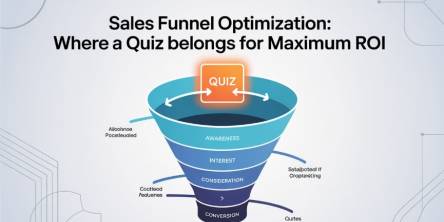Leverage Artificial Intelligence to Solve Top Software Testing Challenges

Artificial Intelligence has become an integral part of our routine life. The AI-powered machines, software, and other automated processes reduce human efforts in day-to-day services such as using Google Maps for route planning or taking help of voice assistants like Alexa for shopping online. The self-driving cars, chatbots, and even the smartphone in your hand are influenced or driven by Artificial Intelligence.
This technology has brought a paradigm shift in the software development world too. The tech giants like Google, Amazon, Microsoft, and Facebook have invested Billions in their AI initiatives. According to Gartner, AI technology will be in almost all the new software products and services by 2020.
However, why AI is essential in software testing?
Manual testing was a norm in software development in the last few years. However, it creates a plethora of challenges and requires much time of QA engineers to ensure that the developed software or product is reliable, high quality, and accurate. Moreover, modern applications interact with one another through APIs, and their complexity tends to increase because of the continuous growth in code suits. When developers implement new changes or edit the existing code, which already has gone through the testing process, it may create difficulties and hold the product release.
The use of AI can help to address these challenging environments of software testing. The AI-powered test automation can bring agility in the testing process and help to release robust software products into the market faster.
How the introduction of AI changes software testing process
Artificial Intelligence provides extensive benefits in software testing. It can modify the existing testing methods and can introduce approaches such as statistical learning, cognitive simulation, machine learning, semantic technology, and more. These methods & procedures help to perform software testing with increased reliability and efficiency.
With the advent of AI, software testing has witnessed significant changes, including:
- Automation of Visual Validation Tools: These tools help to perform image-based testing to detect UI anomalies. The ML-based visual validation tools can identify slightest changes that human eyes can miss at times. The automated UI testing ensures that any graphic element such as color, shape, size, and position does not overlap with other UI components. The constant updates in the algorithm help to check all these visual bugs without human involvement.
- Automation of Test Case Writing: Generating automatic test cases for software is one of the critical advantages of AI-based test automation. When the testing team points AI/ML tools to a particular software, they crawl the target application and collect the data such as HTML pages, screenshots, page load time, and more. Over time, these tools help to create an ML model that can identify the patterns of the application. When this model is executed, it compares the current state of the app components with the saved or identified trends. If there is any error or difference, the system automatically marks it as an issue.
- Improvement in quality & reliability: Many testers face the problem of UFT or Selenium testing failure because of small changes or updates to the application. Such changes include renaming a filed name, resizing a specific field, and more. In such situations, AI tools make it possible to automatically identify these changes and the relationship between them and the application. The ML scripts adjust automatically with the app changes. This process helps to make the code correct and reduces the fragility in test automation.
- Forecasting Client Requirements: If a company can predict the client requirements for software testing purposes, then it can identify the right approach and become a notch better than the competitors. Machine learning helps to analyze and understand the customer data related to the products & features they need. It empowers enterprises to generate most pertinent test cases to provide bespoke software products and services.
Conclusion
Whether it be banking & finance, health, manufacturing, or digital sector- every domain is trying to innovate and use AI-based processes that help to automate specific tasks. Artificial Intelligence is undeniably growing to be an essential element in software testing as well as QA.
The AI-powered testing services in software testing helps to advance accuracy and reduce the overall testing time, cost, and scripting. Therefore, the software teams should now think of the possible ways to incorporate AI in their software development, testing, and maintenance phases.
Similar Articles
Hospitals operate in environments where availability and patient safety are paramount at all times. As medical supply chains expand and regulatory oversight becomes more demanding, manual tracking methods introduce delays and risk.
Every sales funnel has one core goal: turn attention into revenue as efficiently as possible. Yet many funnels leak value at critical stages—visitors bounce, leads go cold, and sales teams chase prospects who were never a good fit.
Decentralized Finance (DeFi) has transformed how users earn passive income through blockchain-based financial systems. Among its most popular use cases,
Staying organized can feel like a full-time job. Between meetings, deadlines, and personal commitments, it’s easy to get overwhelmed.
Choosing the right GIS mapping software depends on what you need to accomplish. Some platforms cater to developers who want to build custom applications from scratch.
For data intensive industries such as insurance, the global business landscape is undergoing a profound transformation. Thanks to all the relentless technological innovation, this shift presents both significant challenges and unparalleled opportunities for modernization of the insurance sector.
Organizations are always looking for newer technologies to aid their operations. So, this hunt revolves around solutions that offer not only agility and scalability but are also cost-effective.
Not long ago, the idea of multiple AI agents working together, each with a specific role, collaborating to solve problems, felt like science fiction.
In today’s data-driven world, choosing the right business intelligence (BI) platform can make or break your organization's analytics success.









